Top 10 Greatest Mathematicians of All Time
This a list of the greatest mathematicians who have ever walked on this world. This is based on my knowledge... please help and enrich this list adding more names of the great mathematicians. Leonhard Euler was a Swiss mathematician and physicist who made pioneering contributions to several areas of mathematics, including calculus, number theory, and topology. Born in 1707, he wrote more than 800 papers during his lifetime and is known for introducing much of the mathematical notation used today. Euler's work in mechanics, fluid dynamics, optics, and astronomy also had a lasting impact. He continued to work prolifically even after losing his eyesight later in life.
Leonhard Euler was a Swiss mathematician and physicist who made pioneering contributions to several areas of mathematics, including calculus, number theory, and topology. Born in 1707, he wrote more than 800 papers during his lifetime and is known for introducing much of the mathematical notation used today. Euler's work in mechanics, fluid dynamics, optics, and astronomy also had a lasting impact. He continued to work prolifically even after losing his eyesight later in life. Euler is to math as Einstein is to physics. He is the greatest mathematician of all time, and I don't see how anyone can pick anyone else. It's not even close. Euler is the best by a long shot.
He is not only a prolific writer in mathematics, but there is also a beauty in the theorems and concepts made by him. A very interesting mathematician.
Why is there even a discussion about this? Just look at his scope in quality and quantity. Nobody comes close.
 Srinivasa Ramanujan was an Indian mathematician known for his extraordinary contributions to mathematical analysis, number theory, infinite series, and continued fractions. Born in 1887 in Erode, India, he was largely self-taught and produced a wealth of original theorems and ideas. Although he had almost no formal training in pure mathematics, Ramanujan's work has continued to inspire mathematicians. He died at the young age of 32, but his legacy in the realm of mathematics endures.
Srinivasa Ramanujan was an Indian mathematician known for his extraordinary contributions to mathematical analysis, number theory, infinite series, and continued fractions. Born in 1887 in Erode, India, he was largely self-taught and produced a wealth of original theorems and ideas. Although he had almost no formal training in pure mathematics, Ramanujan's work has continued to inspire mathematicians. He died at the young age of 32, but his legacy in the realm of mathematics endures. He developed mathematical functions, including what is now known as mock modular forms, based on what one would call his "visions." He did this just by thought and without proof in most cases. None of his work has been repudiated to this date, albeit there have been corrections and improvements.
Mathematicians who came after him have been able to prove most of Ramanujan's work. His mathematical model that points to the existence of black holes, a full 100 years before there was any concept of black holes (let alone a fully developed theory), showcases his brilliance as a mathematician. His influence has also been rightly noted in the development of string theory.
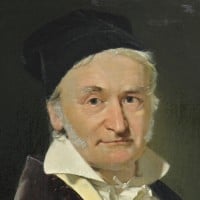 Carl Friedrich Gauss was a German mathematician born in 1777, renowned for his contributions to number theory, statistics, algebra, and many other fields. Often referred to as the "Prince of Mathematicians," Gauss was a child prodigy who went on to make groundbreaking discoveries in a variety of mathematical disciplines. His work in astronomy and physics was also influential. His theorem in number theory, known as the Gaussian law, among many other discoveries, has a lasting legacy.
Carl Friedrich Gauss was a German mathematician born in 1777, renowned for his contributions to number theory, statistics, algebra, and many other fields. Often referred to as the "Prince of Mathematicians," Gauss was a child prodigy who went on to make groundbreaking discoveries in a variety of mathematical disciplines. His work in astronomy and physics was also influential. His theorem in number theory, known as the Gaussian law, among many other discoveries, has a lasting legacy. Gauss took the baton from Euler and worked on hard problems. Not as prolific as Euler because he preferred more rigorous proofs. I think he was that much more influential.
Mathematics is a subject that becomes more difficult as we progress. Who knows who would have been the best had everybody started with a similar state of knowledge. Euler, Gauss, Gauss, Euler, or von Neumann. I'm going for Gauss, maybe I just like number theory.
Even though I like Leonard Euler very much due to the beautiful theorems invented by him, I feel Gauss would stand as the greatest mathematician of all times if we consider the rigor of his mathematical analysis and his ability.
 Isaac Newton was an English mathematician, physicist, and astronomer born in 1643. He is most famous for his laws of motion and the law of universal gravitation. Newton's "Mathematical Principles of Natural Philosophy" laid the groundwork for classical mechanics and has been regarded as one of the most important works in the history of science. In mathematics, he developed the foundations of calculus, although there is some contention over the extent to which he shares this achievement with Leibniz.
Isaac Newton was an English mathematician, physicist, and astronomer born in 1643. He is most famous for his laws of motion and the law of universal gravitation. Newton's "Mathematical Principles of Natural Philosophy" laid the groundwork for classical mechanics and has been regarded as one of the most important works in the history of science. In mathematics, he developed the foundations of calculus, although there is some contention over the extent to which he shares this achievement with Leibniz. He is the only human being to be argued as the greatest mathematician ever and the greatest physicist ever at the same time. Gauss is cool but only a mathematician. Einstein is fine and dandy but only a physicist. Newton is in a league of his own. I don't know of what kind of thing this creature is made of.
He should be at the top of the list. He is just the greatest mathematician who ever lived! After all, he's the founder of the most important branch of mathematics: calculus. So please, vote for him.
He really was the greatest mathematician who found calculus and was fantastic, as placed by Bernoulli. Today we know calculus, but the essence was Newton's invention.
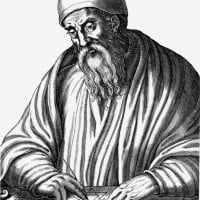 Euclid was an ancient Greek mathematician, often referred to as the "father of geometry" for his work in the field. He lived around 300 BC and his most famous contribution is the book "Elements," which has been used as the main textbook for teaching mathematics, particularly geometry, until modern times. The "Elements" consists of thirteen books covering topics from plane geometry to number theory. Euclid's work has had a profound influence on mathematics, serving as the main textbook for teaching mathematics (particularly geometry) until the late 19th or early 20th century.
Euclid was an ancient Greek mathematician, often referred to as the "father of geometry" for his work in the field. He lived around 300 BC and his most famous contribution is the book "Elements," which has been used as the main textbook for teaching mathematics, particularly geometry, until modern times. The "Elements" consists of thirteen books covering topics from plane geometry to number theory. Euclid's work has had a profound influence on mathematics, serving as the main textbook for teaching mathematics (particularly geometry) until the late 19th or early 20th century. The father of geometry should be on top of the list.
 Archimedes was an ancient Greek mathematician, engineer, and physicist, born in 287 BC. He is most famous for his contributions to geometry and calculus of variations, as well as his inventions of military engineering such as the Archimedes screw. The story of him running naked through the streets shouting "Eureka" after discovering the principle of buoyancy is part of mathematical folklore. His work laid the foundations for much of modern mathematics and engineering.
Archimedes was an ancient Greek mathematician, engineer, and physicist, born in 287 BC. He is most famous for his contributions to geometry and calculus of variations, as well as his inventions of military engineering such as the Archimedes screw. The story of him running naked through the streets shouting "Eureka" after discovering the principle of buoyancy is part of mathematical folklore. His work laid the foundations for much of modern mathematics and engineering. I believe Archimedes should be in the top three. He invented buoyancy and the principle of the lever. The principle of the lever is the first principle ever to be introduced. He also made the spiral pump, which is still used today. If it weren't for him, there would be no science of today.
Archimedes used calculus 1000 years before Newton "invented" it. He also founded pi. Just look up the Antikythera mechanism. While some do not believe he invented it, it comes from Syracuse, his time, and he is the only one who could have invented it. Texts claim he built such a thing.
 Pythagoras was an ancient Greek mathematician and philosopher, born around 570 BC. He is best known for the Pythagorean theorem, which relates the sides of a right triangle. Though the theorem was known to Indian mathematicians before him, it bears his name in the Western world. The Pythagorean school he founded studied mathematics, music, and astronomy, and greatly influenced subsequent Western philosophy and religious thought.
Pythagoras was an ancient Greek mathematician and philosopher, born around 570 BC. He is best known for the Pythagorean theorem, which relates the sides of a right triangle. Though the theorem was known to Indian mathematicians before him, it bears his name in the Western world. The Pythagorean school he founded studied mathematics, music, and astronomy, and greatly influenced subsequent Western philosophy and religious thought. This is one of the fathers of the modern math argumentation system and also the author of the first mathematical theorems in history.
The God of Trigonometry, a subject which I couldn't solve without a calculator.
The Pythagorean Theorem is very important in mathematics. He deserves to be in the top 5 at least!
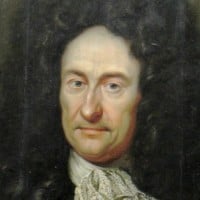 Gottfried W. Leibniz was a German mathematician and philosopher born in 1646. He is best known for independently developing calculus around the same time as Isaac Newton. His notation and approach, especially concerning integral calculus, are still used today. Aside from mathematics, Leibniz made contributions to philosophy, law, and history. He also built one of the first mechanical calculators.
Gottfried W. Leibniz was a German mathematician and philosopher born in 1646. He is best known for independently developing calculus around the same time as Isaac Newton. His notation and approach, especially concerning integral calculus, are still used today. Aside from mathematics, Leibniz made contributions to philosophy, law, and history. He also built one of the first mechanical calculators. Among his many contributions to a variety of fields, he independently invented Calculus, and it is his notation that we learn today in school. His notation was so much more powerful than Newton's that, because of their furious dispute, the British refused to adopt it. Thus, they fell behind the rest of Europe in mathematics over the next century.
This is why, after Newton, you don't hear about any great mathematicians from England. The next wave of math geniuses came from France, Germany, and other countries, in the persons of Laplace, Lagrange, Gauss, Euler, etc.
 John Von Neumann was a Hungarian-American mathematician, physicist, and computer scientist, born in 1903. He made significant contributions to quantum mechanics, functional analysis, set theory, economics, and other scientific disciplines. Von Neumann was one of the key figures in the development of game theory and the concept of cellular automata. He also contributed to the development of the first electronic general-purpose computer, the ENIAC.
John Von Neumann was a Hungarian-American mathematician, physicist, and computer scientist, born in 1903. He made significant contributions to quantum mechanics, functional analysis, set theory, economics, and other scientific disciplines. Von Neumann was one of the key figures in the development of game theory and the concept of cellular automata. He also contributed to the development of the first electronic general-purpose computer, the ENIAC. John Von Neumann was a polymath who made vast contributions to a multitude of fields in mathematics, including ergodic theory and stochastic computing. He addressed an array of topics awaiting exploration by the layman. Von Neumann was asked to write an essay on what mathematics is for the layman, and he formulated an eloquent piece. His linguistic prowess was in correspondence with his mathematical flair.
He described how the empirical straddled the logical and warned us mere mortals of how we could readily be diverted from our path to ultimate complexity (simplicity) with convoluted matters. Edward Teller once said, "Nobody knows all of science, not even JVN," illustrating how vast the scope of scientific knowledge is and how Von Neumann's prefrontal cortex was addled with a deep thinking regime.
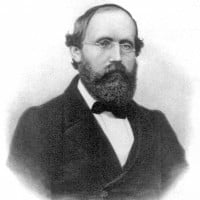 Bernhard Riemann was a German mathematician born in 1826, best known for the formulation of Riemannian geometry, which has had a profound impact on both pure and applied mathematics. His work laid the foundations for Einstein's theory of general relativity. He also made important contributions to analysis and number theory. The famous Riemann Hypothesis, a conjecture about the distribution of prime numbers, is still unsolved and is one of the Clay Millennium Prize Problems.
Bernhard Riemann was a German mathematician born in 1826, best known for the formulation of Riemannian geometry, which has had a profound impact on both pure and applied mathematics. His work laid the foundations for Einstein's theory of general relativity. He also made important contributions to analysis and number theory. The famous Riemann Hypothesis, a conjecture about the distribution of prime numbers, is still unsolved and is one of the Clay Millennium Prize Problems. The greatest mathematician, in my opinion. He set the foundations of modern geometry. You won't see anything more than his name when you study topology, complex analysis, and differential geometry. He is also the originator of the biggest open problem in mathematics, The Riemann Hypothesis, which, after 160 years, still hasn't been proven.
He created the Riemann hypothesis, considered the most difficult problem by many. His teacher gave him an 859-page book on number theory, and he returned it in just six days when he was just 14 (and that's saying a lot, since number theory is one of the most difficult math branches).
 Aryabhata was an ancient Indian mathematician and astronomer, born in 476 AD. He is known for writing the "Aryabhatiya," a significant work in Indian astronomy and mathematics. Aryabhata's contributions include an explanation for the rotation of the Earth on its axis, methods for calculating the volume of a sphere, and approximate values for trigonometric functions. His works have been influential not only in India but also in the Islamic world and later in Europe.
Aryabhata was an ancient Indian mathematician and astronomer, born in 476 AD. He is known for writing the "Aryabhatiya," a significant work in Indian astronomy and mathematics. Aryabhata's contributions include an explanation for the rotation of the Earth on its axis, methods for calculating the volume of a sphere, and approximate values for trigonometric functions. His works have been influential not only in India but also in the Islamic world and later in Europe. His works suggest that he was a man who possessed superhuman brains. He was more than a millennium ahead of the West. He knew about gravity, different properties of the solar system, the size of the Earth, trigonometry, the value of pi, the length of a year accurate to four places after the decimal, eclipses, properties and nature of the mystic number zero, etc.
He also used a different approach to integral calculus in order to calculate various areas.
He is the best mathematician ever. His works were not converted into books. That was the reason why he was not as famous as Euler. He invented trigonometry, which is the most essential field in geometry. He proved the theorem of Pythagoras much before, but they were not converted into books. Therefore, we say it's Pythagoras' theorem.
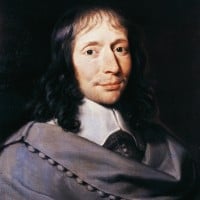 Blaise Pascal was a French mathematician and physicist born in 1623. He is known for Pascal's Triangle, a way to present binomial coefficients, and for his contributions to the theory of probability. Pascal also made important contributions to fluid mechanics and is the namesake of the unit of pressure, the Pascal. Despite dying at a young age of 39, his work in both mathematics and philosophy has left an enduring legacy.
Blaise Pascal was a French mathematician and physicist born in 1623. He is known for Pascal's Triangle, a way to present binomial coefficients, and for his contributions to the theory of probability. Pascal also made important contributions to fluid mechanics and is the namesake of the unit of pressure, the Pascal. Despite dying at a young age of 39, his work in both mathematics and philosophy has left an enduring legacy.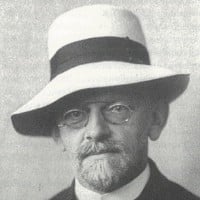 David Hilbert was a German mathematician born in 1862 who made pioneering contributions to a wide range of mathematical fields, including algebraic number theory, the calculus of variations, and quantum mechanics. Perhaps his most famous work is Hilbert's problems, a list of 23 unsolved problems that set the course for much of 20th-century mathematics. He also contributed to mathematical logic and the foundations of geometry. His work has had a significant impact on the philosophy of mathematics and on mathematical practice.
David Hilbert was a German mathematician born in 1862 who made pioneering contributions to a wide range of mathematical fields, including algebraic number theory, the calculus of variations, and quantum mechanics. Perhaps his most famous work is Hilbert's problems, a list of 23 unsolved problems that set the course for much of 20th-century mathematics. He also contributed to mathematical logic and the foundations of geometry. His work has had a significant impact on the philosophy of mathematics and on mathematical practice. Should've ranked higher. He almost solved or completed Einstein's General Relativity theory after Albert had been working on it for eight to nine years. Hilbert decided to try and solve it, and probably did, right before Einstein. He never tried to take any credit. He wasn't disrespectful and knew this was Einstein's life's work.
He created the theorem and demonstrated the proof for the Algebraic Finite Basis Theorem.
Surely one of the most influential 20th-century mathematicians. He turned Göttingen into the most important center of mathematical activity in the world, until the Nazis dismantled it for political reasons.
Cantor should be much higher than 14th. He invented set theory and revolutionized the concept of infinity.
Basically invented set theory, the underlying basis of all modern mathematics.
The first one with the guts to attempt to tackle infinity.
Well, he should at least be in the top 2 for the spectacular mathematics he did.
 René Descartes was a French mathematician, philosopher, and scientist born in 1596. He is best known for the Cartesian coordinate system, which is fundamental to modern analytic geometry. Descartes also contributed to the philosophy of dualism, positing a separation between the mind and the body. His famous statement "Cogito, ergo sum" (I think, therefore I am) has had a lasting impact on Western philosophy. In mathematics, he developed methods that are foundational to calculus and number theory.
René Descartes was a French mathematician, philosopher, and scientist born in 1596. He is best known for the Cartesian coordinate system, which is fundamental to modern analytic geometry. Descartes also contributed to the philosophy of dualism, positing a separation between the mind and the body. His famous statement "Cogito, ergo sum" (I think, therefore I am) has had a lasting impact on Western philosophy. In mathematics, he developed methods that are foundational to calculus and number theory. This guy is huge in Physics, Mechanics, and Engineering, with a focus on Statics and Dynamics. His work includes calculations for objects either at rest or in constant motion, providing a plethora of examples and a framework for understanding these concepts. In the future, these might be done in real time, although some background might be needed.
With René Descartes, all this became possible, which is a great contribution to Christianity and the celebration of Christmas. His awesome contributions dared to explore where none had been, without which there might have been delays. Those who just get the job done owe their name attribution to René Descartes.
 Alan Turing was an English mathematician and computer scientist, born in 1912. He is renowned for his work in theoretical computer science and is often considered one of the fathers of computer science. Turing is perhaps best known for his role in breaking the German Enigma code during World War II, a feat that was vital to the Allied victory. Despite his contributions, he faced persecution for his homosexuality and was chemically castrated, leading to his premature death in 1954.
Alan Turing was an English mathematician and computer scientist, born in 1912. He is renowned for his work in theoretical computer science and is often considered one of the fathers of computer science. Turing is perhaps best known for his role in breaking the German Enigma code during World War II, a feat that was vital to the Allied victory. Despite his contributions, he faced persecution for his homosexuality and was chemically castrated, leading to his premature death in 1954. Inventor of the Turing machine. The first theoretical computer. Inventor of the Turing test for AI. Cracked the Enigma machine during WWII.
Please put him at the top because he really deserves it. How can the founder of algebra be situated here? You should even replace him with Euler, as without the first, the second wouldn't even conceive of something new.
I guess it's shameful that Europeans are always on top of any lists. It is a shame for our societies that the inventor of mathematics/algebra is not at the top of this list.
He's the inventor of algebra! How come he's not in the top 5 at least!
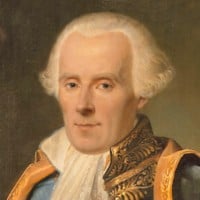 Pierre-Simon Laplace was a French mathematician and astronomer born in 1749. He made significant contributions to statistics, calculus, and celestial mechanics. Laplace is known for his work on probability theory and for the Laplace Transform, a mathematical operation used in various scientific and engineering applications. His work has had broad implications in physics, engineering, economics, and even philosophy.
Pierre-Simon Laplace was a French mathematician and astronomer born in 1749. He made significant contributions to statistics, calculus, and celestial mechanics. Laplace is known for his work on probability theory and for the Laplace Transform, a mathematical operation used in various scientific and engineering applications. His work has had broad implications in physics, engineering, economics, and even philosophy.
Remember how he made other mathematicians suffer after he died.
 Albert Einstein was a German-born theoretical physicist and mathematician, born in 1879. Though he is most famous for his theories of relativity, his work also has significant implications for the philosophy of science. Einstein's equation E=mc^2 revolutionized our understanding of matter and energy. His contributions have had a lasting impact not just in physics but also in various branches of mathematics, including differential geometry and mathematical physics.
Albert Einstein was a German-born theoretical physicist and mathematician, born in 1879. Though he is most famous for his theories of relativity, his work also has significant implications for the philosophy of science. Einstein's equation E=mc^2 revolutionized our understanding of matter and energy. His contributions have had a lasting impact not just in physics but also in various branches of mathematics, including differential geometry and mathematical physics. From theorizing to formulating a solution to prove he's right about the nature of the cosmos, going way beyond the understanding of Newton. I put him as the greatest theoretical physicist, and one of, if not the greatest mathematician of all time.
What! Are you crazy? He is a scientific genius. He worked through geometry, algebra, and calculus before his uncle understood it. And his uncle was an electrical engineer.
Proved his mathematical genius (as well as his prowess as the greatest physicist) in the formulation of general relativity.
Differential equations and dynamical systems are at the base of modern math applications and technical progress. Poincaré is undoubtedly one of the most prominent scientists who made this branch of math what it currently is. He deserves to stand in one line with Newton, so I give him my vote.
One of the fathers of the mathematical theory of Chaos.
The last true master of ALL of mathematics!